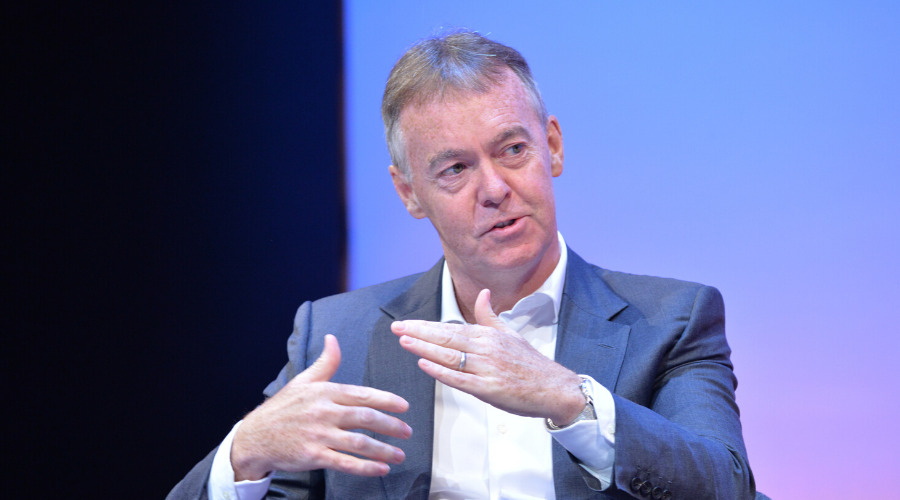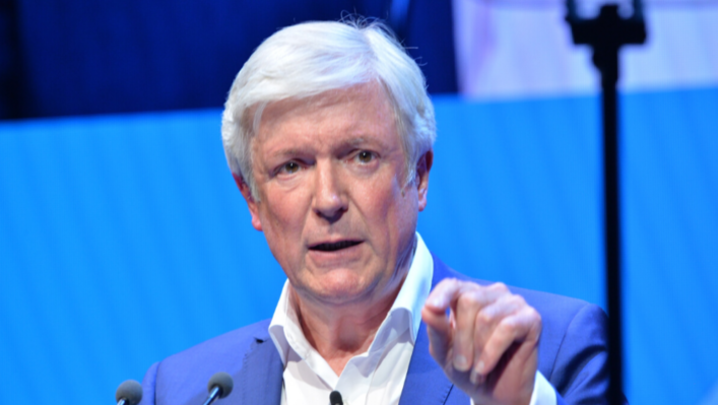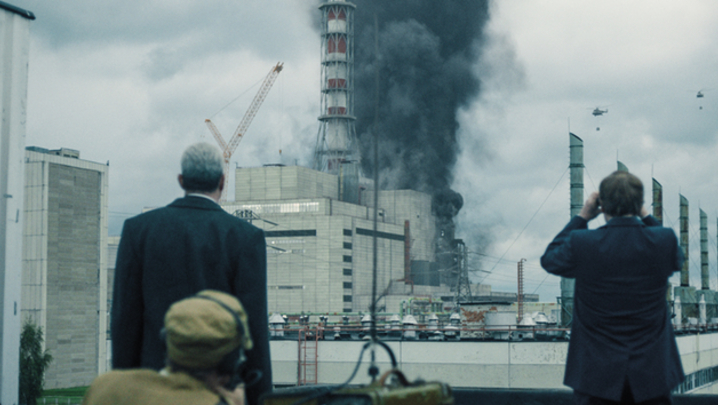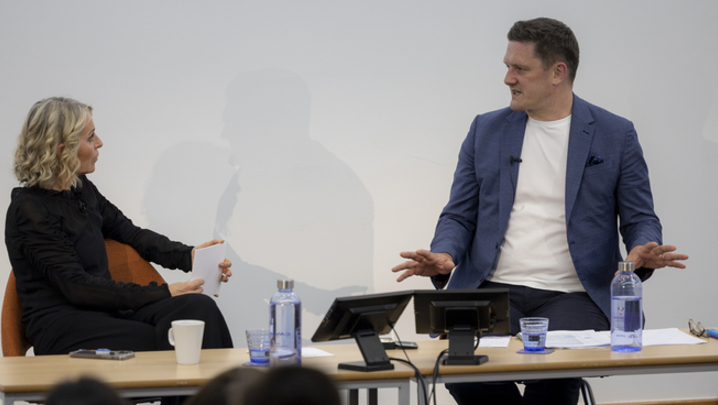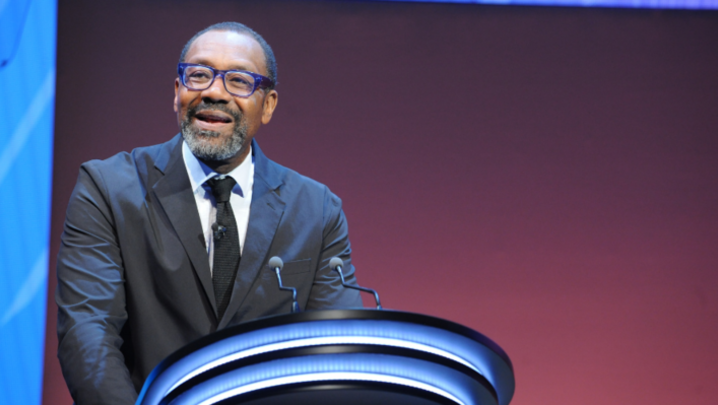Being part of Comcast gives Sky great global potential, argues Sky’s CEO
What a difference two years makes. In 2017, Sky was one of the crown jewels of the vast Murdoch media empire, beloved by investors and publicly traded on the London Stock Exchange. Spool forward to 2019 and Sky is part of Comcast, the US cable conglomerate, which successfully outbid Disney to buy Europe’s biggest pay-TV provider for a staggering $39bn.
But Sky’s plain-speaking CEO remains in situ. Jeremy Darroch succeeded James Murdoch in 2007, after joining the company as chief financial officer in 2004. He became Group CEO in 2014 following the acquisition of Sky Italia and Sky Deutschland.
Darroch told the RTS that he’d stayed on after the takeover because the pace of change had created a climate in the TV sector that had never been more exciting: “There will be challenges, of course, but the opportunities this presents are huge.”
Having recently launched Sky Studios, and won unanimous acclaim for the Sky Atlantic drama Chernobyl, Darroch was enthusiastic as he outlined his strategy to The Times’s deputy business editor, Graham Ruddick.
Being part of Comcast – which also owns NBCUniversal – gave Sky “great global potential”, he said. The satellite behemoth might have a new owner but the business remains broadly the same. “That’s because our new colleagues are very keen for us to take the lead. I can’t speak highly enough of them,” said the Sky CEO. “What you’ll also see is an emerging set of big ideas. For instance, NBC’s Peacock streaming service and global advertising project: [we will] take our AdSmart technology and combine it with some of the great initiatives NBCU has developed.”
In Milan, Sky Italia is poised to move into the telecommunications business, “supercharged by the world-class technical capability of Comcast”.
Darroch continued: “We bring a lot to the party. In many respects, the businesses that are being created today mimic what we’ve created at Sky. The idea of a fully integrated media company that combines everything from owned and acquired content, world-class consumer technology, best-in-class customer service capability, a really strong brand and the ability to apply customer insight across the value chain to deliver competitive advantage is what Sky is all about.”
In the UK, Sky’s Now TV has helped to future-proof the business in the face of competition from online platforms. But with the imminent arrival of other, well-funded, direct-to-consumer services, further significant challenges are looming.
Said Darroch: “People are only just beginning to get their heads around what it actually takes to be successful.…It is not only about your content and technology, but about the whole process of managing, operating and running a large-scale consumer business.…
“All of the businesses I respect and admire are on the front foot.... They’re trying to figure it out. They’ve all got strong plans they’re trying to execute.... This is not a time for equivocation.”
‘The opportunity to grow customers… is as strong today as it’s ever been’
Disney and, not surprisingly, Comcast and NBCU are among the businesses he admires.
So, too, are the Faangs. “Whatever your view of them, they are unbelievable businesses. Interestingly, they are businesses that have grabbed market share,” he argued. “They’ve created some new markets, but they’ve grabbed huge amounts of share from old, incumbent players by moving very quickly and by creating light, agile operating infrastructures and embracing new technology.”
How does Sky fit into all this? Did he expect to lose content and will he lose subscribers? Darroch predicted that the number of Sky subscriptions would continue to grow: “The opportunity to grow customers in all our core markets, broadly by expanding the business, is as strong today as it’s ever been.
“But that growth will come from different places.… We are building our relationship with each of the [Sky] households. Today, we have a deeper relationship with those households. As we do that and we deliver that well, we find the propensity for Sky customers to aggregate all of their services with Sky is very strong.”
As for content, a taste of what’s in store as the battle for streaming rights hots up came earlier in September. Netflix paid a reported $500m for exclusive streaming rights to Seinfeld. Earlier, NBCU had grabbed back the US version of The Office from Netflix.
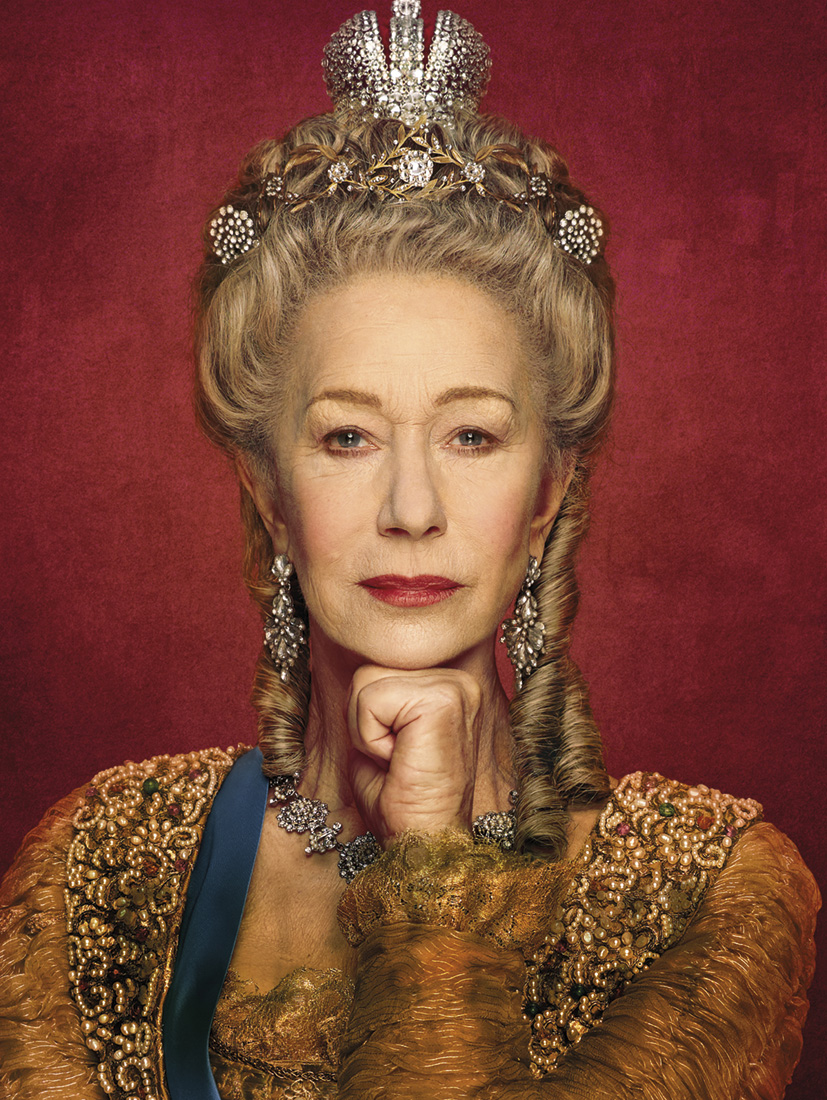
Darroch predicted that Sky would “seek to lose content and then we will do more of our own content”.
He continued: “I don’t think our overall content offering will be diminished at all, but it will be different in the future. Some of that will be driven by us.… Maybe others will seek to go by a different path. But there’s no reason why it can’t be better.”
'[Netflix] has successfully integrated into the Sky user interface”'
In the future, Sky was likely to have fewer, deeper partnerships with third parties, including platforms, content owners, producers, writers and talent. He highlighted how Netflix had been successfully “fully integrated into the Sky user interface”.
Was there a similar deal Sky could do with Apple after Apple TV+ launches in November. “I don’t see why not. That’s not to say that we’re about to do a deal with Apple. We’ve got a really good template that’s worked well for both us and Netflix. We have great relationships with all the free-to-air broadcasters. We want those to get deeper as well.”
Having NBCU as a sister company will boost Sky’s already strong reputation for US shows. Alongside this is the company’s ambition for Sky Studios to “develop European stories at a scale that’s never been seen before”.
How would his company achieve this? By a long-term commitment and building an infrastructure and teams that could deliver, said Darroch. “You need to create the right working environment. That’s particularly true now because content creators have never had more choice regarding who they work for.”
This was critical to attracting and retaining the right people. Two other factors were committing capital – “something we’re rather good at” – and an appetite for risk.
What has he learnt from Chernobyl? “I was a little unconvinced [about] a nuclear disaster [drama] but, when I read the first script, I got it immediately. You replicate that by backing people and ideas.
“You recognise what it is that you can bring, but allow people freedom to pursue what they want to pursue.… Then you put the full marketing weight of the business behind it when it transmits.”
How much will he pull back on Sky Sports to fund Sky Studios? “Pull back isn’t quite right. The sports market is changing a lot.… Around the world, sports as a subscription business isn’t growing. There’s not a huge amount of new demand that’s coming into it.
“We are very, very value-driven. Our ability to analyse the value of sport, and understand where it fits into our business… We’ll decide where that is at the right time. The good news is that we’ve got such a broad range of sport that runs across the year.
“Our ability not to do so much sport or to lose some rights doesn’t have that big effect on the business anymore.”
When Darroch joined Sky in 2004, 93% of subscribers took the top-tier package, which included sport.
“At the time,” he conceded, “we were very, very wedded to sport. I didn’t really like the look of that. Today, fewer than half of our customers take sport.”
In Session Eight, Sky CEO Jeremy Darroch was interviewed by Graham Ruddick, deputy business editor, The Times. The producers were Sue Robertson and Martin Stott. Report by Steve Clarke.

